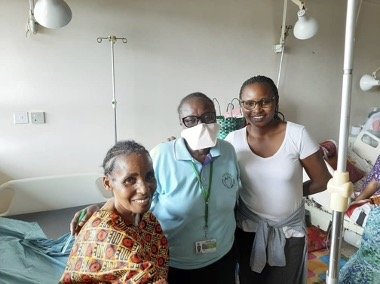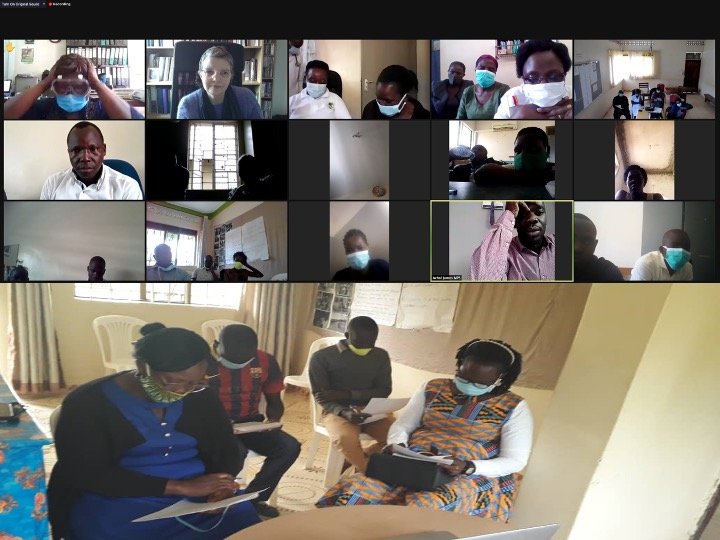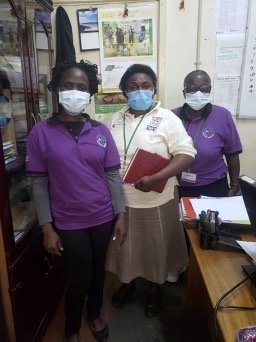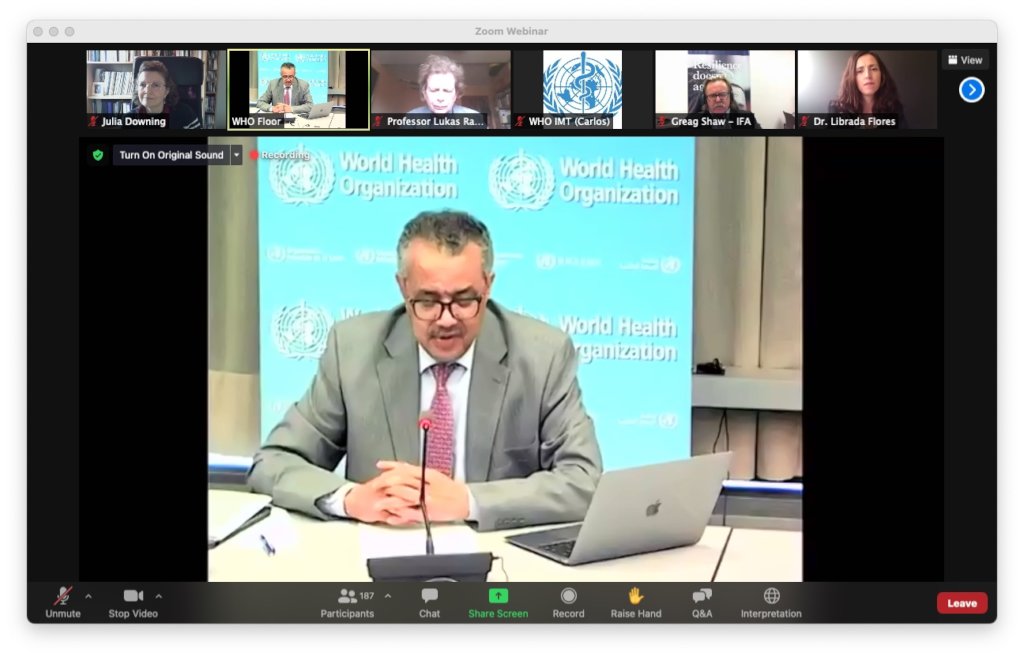By Grace Kivumbi | Project Administrator
Please receive warm greetings from the team!
We are delighted to once again be able to share with you updates from our work in the last 3 months.
1.Patient care
In this period February –April 2021 the team has cared for a total of 270 patients and their families with 401 physical contacts to those in hospital and 123 contacts via telephone mainly for follow up after discharge, bereavement support and continuity of care in the community.
As more COVID19 cases were detected at the Uganda Cancer Institute (UCI) where majority of our patients are, in December 2020, there was keen and straight follow up of SOPs and screening. UCI then became one of the screening centres for COVID19 and all patients were screened and those found positive were taken into isolation for treatment. All of our medical staff involved in patient care were also screened due to exposure and all of them tested negative, many thanks to you all who have supported the purchase of PPE supplies for the team and kept them safe.
In February we then noticed an increase in the numbers of new patients compared to the previous months and this was mainly due to the number of COVID19 patients on the wards reducing which made way for other patients.
Currently we also have increased patient contact via telephone which would not have been possible without your support. Also in order to ensure the safety of our staff, especially those in the high risk age brackets, we were able to use a private car from our partner Cairdeas IPCT which ensured safety for our team.
Senior Nurse Josephine reflects on the difference that breaking bad news made to Sarah and her family!
54-year-old Sarah was diagnosed with advanced cancer of the Liver. She was admitted to one of the wards at the Uganda Cancer Institute after visiting many hospitals. Her consultation for palliative care came through to the team. We visited Sarah, she was very sick, confined to bed, with all her care being done for her by her daughter. The daughter pleaded with the team not to tell Sarah her diagnosis.
We held a family meeting together with Sarah and her daughter. Sarah told the team that she had been suffering for the last 4 years but no one had ever told her what her diagnosis was. I asked if she wanted to know more about her condition and she accepted. The daughter confessed to the mother that she has been told by different doctors that her mum had advanced cancer, but feared to tell her fearing she may die as their father had also just recently died. Sarah was not happy with her daughter but after a long discussion she forgave her, and asked the team to continue to tell her about her disease.
I broke the bad news and explained to her that the cancer was advanced and that she would not benefit from chemotherapy thus the only option was to be discharged into the care of the hospice who would be able to visit her at home for pain and symptom control.
Sarah was happy with the palliative care team, put on a smile and blessed the team for letting her know the diagnosis. Her daughter was happy too and promised to let the rest of the children know.
Sarah thanked the team so much and said “….” no man is an island man lives and man must die…” 2 days after discharge I called the daughter Sarah at home and she was happy that they were receiving excellent services from the hospice team. Her pain was controlled and the entire family were happy with her care. She wished all the hospitals had the palliative care team.
2. Education and Training
2.1 Training in children’s palliative care
With support from the Laura Case Trust and the International Children’s Palliative Care Network (ICPCN), we held a 5-day training for health professionals on children’s palliative care (17-18 Feb & 22-24 March). It was an online training programme with 42 students from 7 districts across the different regions of the country, the participants included teams from children’s wards of regional hospitals, health centres and Hospices including: 2 consultants, 1 gynaecologist, 1 surgeon, 5 Clinical Officers, 1 pharmacist, 2 dispensers, 1 counsellor and nurses who were organised into clusters according to regions. Considering the challenges of internet connection especially for our upcountry colleagues, there was a good attendance. The objectives for the training were met coupled with an excellent selection of participants. The participants found the course very refreshing and helpful.
2.2 Transform Obongi and Adjumani project:
Our partner Cairdeas IPCT has been awarded a grant from the UKAID –Small Charities Challenge Fund, building on the previous work that we have done in Adjumani district with our partners Peace Hospice Adjumani: Transforming, empowering communities and health systems to address health related suffering in host and humanitarian settings through capacity building and integration in Adjumani and Obongi districts. The project is being implemented by Peace Hospice, Adjumani with technical support from its partners Cairdeas IPCT and PcERC. We are currently in the process of developing training materials for training that is due to take place during the next period as well as carring out a Rapid Participatory Appraisal in order to get baseline information.
2.3 Working with colleagues from other parts of the world!
Pamela is a nurse working in palliative care from Germany, whilst on her holiday in Uganda recently she paid us a visit and worked alongside the team for 10 days. We appreciated her input and it was a learning experience for all of us.
Pamela left a “love letter” for the team
I was full of expectations on my very first visit on the 12th April 2021. You took me in and welcomed me like a family. After more than a week of working with you on the ground I was left with a lot of admiration for all of the work that you as a team are bringing in, in Palliative care to those that need it the most!!! I appreciated your work and take so much more to Germany with me. You will always be my family in Uganda!
Lots of love Pamela
2.4 Undergraduate and post graduate training
We have trained 120 undergraduate medical students in palliative care from Makerere University and the Islamic University in Uganda in the last 3 months along with 9 postgraduate students from Makerere University.
3. Online learning and discussions:
In this period, we have attended a number of online discussions that have included;
Thank you so much for taking time to read our updates, we will be sharing regularly and for more information about our work please free to contact us on; info.pcerc@gmail.com
God bless you all #stay safe
Project reports on GlobalGiving are posted directly to globalgiving.org by Project Leaders as they are completed, generally every 3-4 months. To protect the integrity of these documents, GlobalGiving does not alter them; therefore you may find some language or formatting issues.
If you donate to this project or have donated to this project, you can receive an email when this project posts a report. You can also subscribe for reports without donating.



